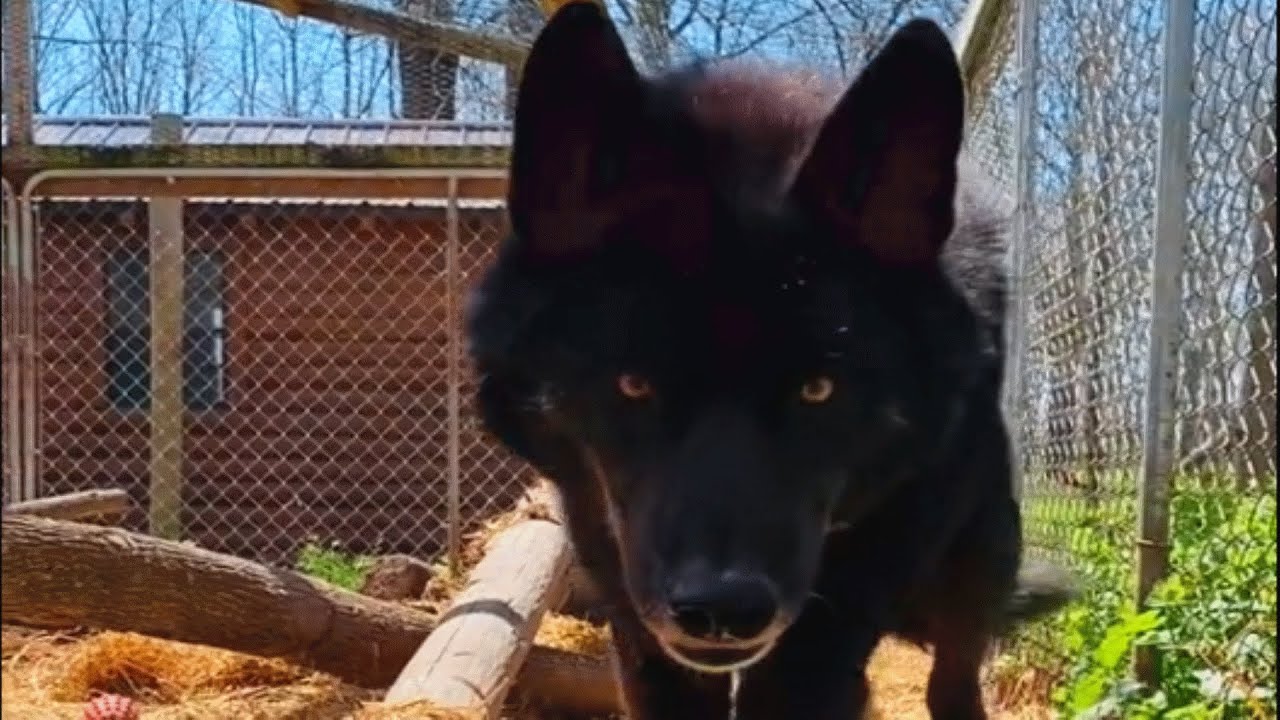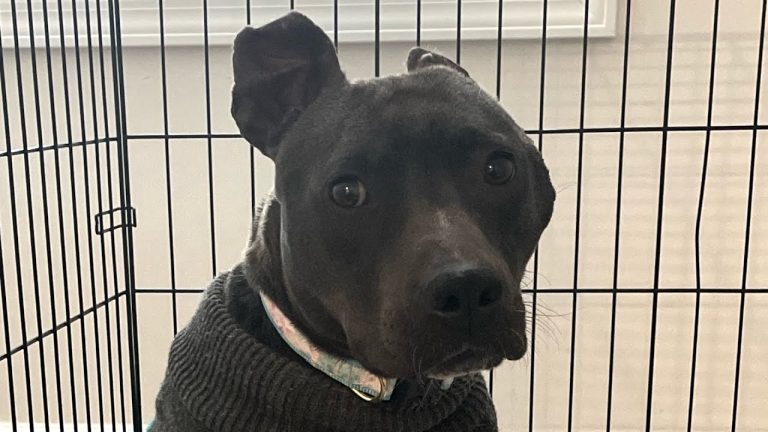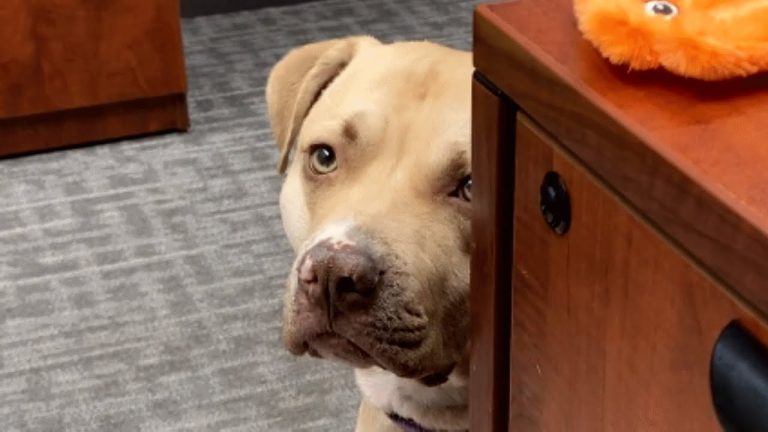Kim Fisher, the founder of Arctic Fox Daily Wildlife Rescue, introduces us to a pivotal moment at her sanctuary. As a haven for animals deemed non-releasable or captive-bred, the sanctuary recently received a call from the New York State Department of Environmental Conservation. They were about to confiscate animals from a hoarding scenario and needed a temporary home for a wolf-dog named Dakota. Despite her limited experience with wolf-dogs, Kim agreed to take Dakota in.
When Dakota arrived, he was visibly distressed and aggressive. He had to be dragged into his new enclosure, but once inside, his demeanor changed as if he sensed a new beginning. His initial aggression gave way to affection when Kim approached him, marking the start of a deep and unexpected bond.
Video:
Transformation and Adaptation
Dakota’s presence at the sanctuary not only transformed his own life but also altered the dynamics within the local canine community. Neighbors noticed changes, with more dogs howling at night, seemingly in response to Dakota’s leadership. Despite his intimidating appearance and size—larger than a typical wolf with a strikingly wolf-like face and black fur with white patches—Dakota proved to be a gentle giant around Kim.
Kim describes how Dakota was not used as a breeder but was likely part of programs where people paid to see exotic animals. This background perhaps contributed to his initial behavioral challenges. However, Dakota quickly adapted to his new environment, and Kim prepared a large, dedicated enclosure for him.
Leadership and Legacy
As the pack leader, Dakota showcased his analytical and controlling nature, managing the relationships among the pack members. Kim’s bond with him deepened to the point where she considered herself part of the pack. A DNA test revealed Dakota was 55% gray wolf, with traces of Alaskan Malamute, German Shepherd, and Belgian Sheepdog, which explains his complex behavior and appearance.
Kim reflects on the misconception that wolf-dog aggression is tied to their wolf DNA, clarifying that wolf-dogs, particularly those with a higher percentage of wolf genetics, tend to avoid conflict. This trait contrasts with lower-content wolf-dogs, who are more direct about their displeasure.
Dakota’s influence led Kim to fall deeply in love with wolf-dogs, understanding their communication style that requires no words. Her life is now intricately tied to the sanctuary, making it difficult for her to take extended vacations, the last of which was in 2018.
In a profound demonstration of their bond, during an experiment where Kim feigned distress by lying down in the enclosure, Dakota immediately took charge, ensuring that newer, less familiar wolf-dogs kept their distance, signaling his protective stance over Kim.
Dakota’s story at the sanctuary is a testament to the transformative power of understanding and compassion, not only for the animals rescued but also for the humans who dedicate their lives to their care.



